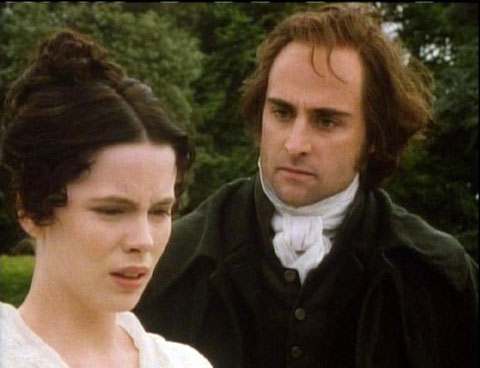I love Jane Austen. Yes, I know, straight white girl likes Jane Austen, what a shock. But sometimes, very rarely, but it does happen, things are popular because they’re actually good. How good exactly? Well, with Austen, it’s actually very manageable to consider, you see, because she “only” has six novels to for us to consider. Sorry Lady Susan, you don’t count. (Epistolary novels are soooo 18th century…)
To tell the truth, ranking them in order of greatness is kind of like choosing my favourite child, out of six, if I had six children… which I probably would if I lived when Jane Austen did. Anyway, let’s get down to it.
-
Northanger Abbey
It’s a rare author indeed who hits a homerun with their very first novel. Well, I suppose First Impressions was before that, but that was heavily revised into Pride and Prejudice, and then there’s the juvenalia… Whatever. Northanger Abbey is an Austen who is not quite ripe. There may be a reason it wasn’t published until after she died, you know?
That being said, the worst of Austen is still quite good.
Catherine Morland, our protagonist, and almost self-conscious “heroine” is an annoyingly naive seventeen year old who learns some lessons about how the world really works and ends the story at little less annoyingly naive then she was. She goes on a visit to the big city (Well, Bath was cool, if it wasn’t that big) where she learns that some people, like the Thorpes, are crappy friends who are actually malicious social climbers. But then other people are cool, like the Tilneys, and it’s fun to go for walks and discuss what “picturesque” means.
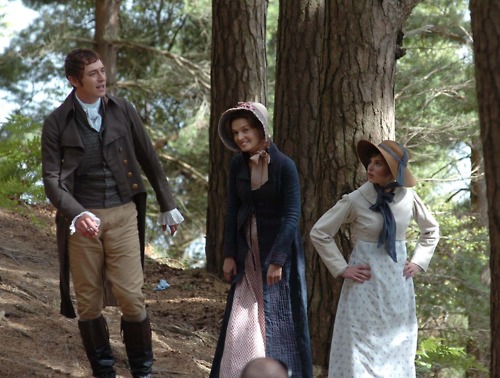
Both of Catherine’s female friendships, the dysfunctional one with Isabella, who encourages all her childish, fanciful qualities, and the far more edifying one with Eleanor, are very realistic portraits of friendships that a seventeen-year-old girl might have. But the plot in Bath rather stumbles at the comedy of manners part. I mean, I know John Thorpe is supposed to be dumb, but who could be dumb enough to interpret, “yes, I think the institution of marriage is neato” as “we’re engaged now”? Not even dumb jocks are that dumb.
Then the plot kind of goes into an entirely different place as soon as we get to Northanger Abbey, and then we remember that, oh right, this novel is a parody of eighteenth century Gothic romances and the tropes contained therein.
There are certain aspects of this part of the novel that work very well. General Tilney was a great villain, because he wasn’t the villain that Catherine expected him to be.
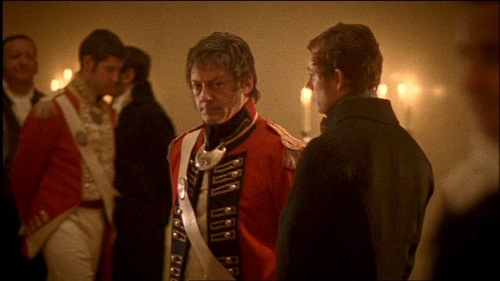
She expects him to be a villain out of one of the Gothic novels she loves so much, down to having murdered his wife, or possibly keeping her locked in the attic. One of my favourite scenes in all of literature remains the one where Henry Tilney, Catherine’s love interest, tells her off for her wacky Gothic ideas. But, the twist is that General Tilney is actually just an asshole.
I know, right?
And then there’s the ending. Talk about reading as though it were slapped together at the last minute. I guess Catherine had a crush on Henry Tilney, but enough to justify marriage? Maybe I’ve been hanging out on tumblr too much, but I honestly think she had more romantic chemistry with Eleanor…
-
Persuasion
If Northanger Abbey is Austen at her most unsophisticated, Persuasion is her at the height of her maturity and powers.
You get the feeling that you’re actually learning something about the author as a woman. Surely it can’t be an accident that she chose the time when she knew she was dying to write a novel about a protagonist who gets a second chance to fix a mistake she made in her youth. Yeah sure, death of the author(not the literal kind this time,) and all that, but it makes you think.
Anne Elliot is wonderful: she’s an introvert with strong moral convictions, and also a lot of guilt. She may be a Martell. Except, of course, Sir Walter Elliot is no Doran.
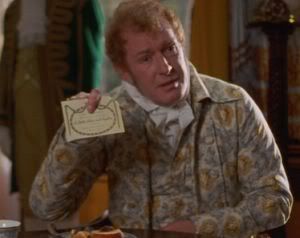
Anne’s father and elder sister are fiscally irresponsible idiots who spent all the family’s money, so they all have to go move to Bath (Bath again…) to save money. But before she joins them (Anne has the same feelings towards fashionable resorts that I would) she decides to spend some time hanging out with her lovably narcissistic and empty-headed little sister, who lives with her family nearby.
But! Coincidence of coincidences, it turns out the the people who rented the Elliot’s house are actually her ex’s sister and her husband, and now he’s come to visit and she has to socialize with him. You see, some years before, she fell in love with this young naval officer and they became engaged. But then her snobby friends talked her out of it. Since he was poor. But now he’s back and has killed enough Frenchies to be stinking rich. Awkward.

No, actually very awkward, but Anne handles it very well, even when Captain Wentworth kind of acts like a jerk. And really the novel is about her just being a good person with one big regret in life. It’s mature, subtle, beautifully written, funny in the right places, and just, you know, themes and shit.
Which is why it feel so damn weird putting it so far down the list, but there’s no denying, this novel has problems. Like, structural problems. For example, what even was that thing with Mrs. Clay and Mr. Elliot? He, like, seduced her so she wouldn’t marry Sir Walter, right? It’s not clear… every visual adaptation seems to take a slightly different take on it. Mr. Elliot in general is Unalaaq level of “huh, what is his plan? Or his motivation?” I mean, I know he’s evil because he travels on Sundays, but did he run out of his wife’s money or not?
And, I’m sorry, because it makes people swoon, but the whole thing with the love-confession letter was a little contrived. Again, I’m sorry.
On the other hand…. You can’t revise when you’re dead, so….
-
Sense and Sensibility
Jane Austen’s first published book (published anonymously) is probably the darkest of her works, and also the most moralizing.
Well, not moralizing exactly, but it’s kind of clear which sister has the right philosophy towards life, isn’t it?

The Dashwoods, Elinor, Marianne, their mother, and their nonentity younger sister, find themselves in a financially tight situation after their father dies. And their elder half-brother is a greedy jerk who supports the Enclosure Movement. (That might be even worse than travelling on Sunday.) So they find themselves renting a cottage on a distant relative’s estate in Devon with only £500 a year to live on. (That’s actually quite a lot, but whatever.)
While there, Elinor deals with the fact she’s in love with Edward Ferrars, her sister-in-law’s brother. But she’s so sensible that she tells herself that she’s above it when she finds out that he has a (gasp) secret fiancee! And she’s kind of an asshole. (Elinor is not, in fact, above it.) Meanwhile, Marianne and all her romanticized notions of romance fall hard for Willoughby, who is more or less a stock rake character. But Colonel Brandon is falling in love with her. He hates Willoughby, for a very good reason, and dark things happen. Willoughby treats Marianne horribly, Lucy Steele (the secret fiancee) is catty, and there’s a mean old lady.

Elinor is another wonderful Austenian protagonist. She’s a woman who wants what she’s supposed to out of life, marriage, a family, financial independence, but who’s not willing to compromise her moral judgement to get them. She’s the emotional rock for those around her. Marianne is uncomfortably like everyone when they’re seventeen.
My only real complaint with this book (other than values dissonance… Marianne and Colonel Brandon are not unproblematic…) is, again, the resolution. I don’t know, maybe Marianne’s reformation of character only lasted two weeks, like all of my reformations of character did when I was her age.
-
Emma
Oh Emma. Who doesn’t love Emma?
I’ve always thought that Emma Woodhouse is a odd protagonist for Jane Austen. In any other of her novels, you would think that she would be the rich girl who the narrative makes fun of. She’s the only Austen protagonist who is independently wealthy, who runs her own household, who is the dominant social force in her network. People want to marry her for her money, for fuck’s sake.
Like, why is this her story and not Jane Fairfax’s. Jane Fairfax is fascinating, man. But no, instead we get an aspiring spinster busy-body. (Emma is exactly what Miss Marple was like in her early twenties.)

But even though I have a vague notion that this story has the wrong protagonist, it’s still brilliant. Emma is a wonderfully flawed character, and her coming of age story is far ahead of its time.
Emma tries to micro-manage the love lives of everyone around her, and pretend that she’s above this whole being in love thing, but oops, she falls in love herself, and drama ensues.
The thing is, even though the story ends in the traditional marriage, the focus is always on female relationships. First there is Mrs. Weston, the most important influence in Emma life, then we focus on her unequal relationship with Harriet Smith.

Afterwards there is Jane Fairfax, and the absolutely hilarious Mrs. Elton. Her great moment of self-realization is centred around her failure to treat another woman, Miss Bates, with the respect she deserves.
I suppose a very good question is Mr. Knightly, and to what extent he is the Ur example of a mansplainer in English literature. He does spend a lot of time telling Emma exactly why she wrong, doesn’t he?
And this novel has the most famous structural problem of all: the dismal pacing of the first volume. The entire first volume is devoted to Emma’s ill-conceived attempt to get Harriet and Mr. Elton together. Yes, the entire thing. Jane Fairfax doesn’t even show up until the first chapter of the second volume. Who knows how many millions of first year university students never got past the first volume. They missed Mrs. Elton!

-
Mansfield Park
I feel like this will be a controversial choice for the silver medal spot, because this book, and the character of Fanny Price, is famously divisive in the Austen fandom. But I suppose you can put me in the pro-Fanny camp.
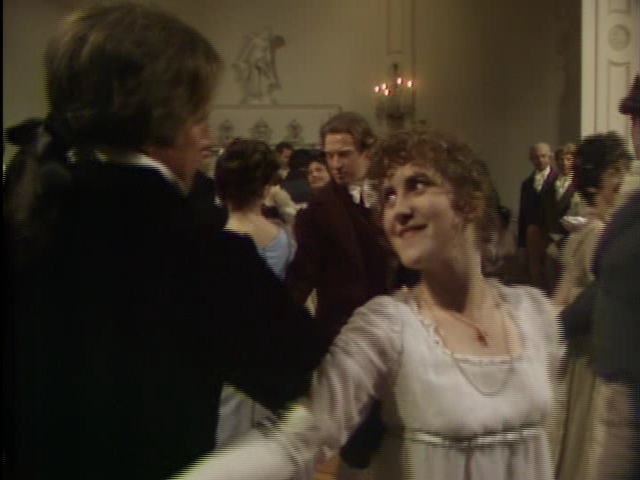
This book, far more than any other in Austen’s oeuvre, suffers from values dissonance. Our ideal of womanhood has evolved quite a bit in the past two hundred years. Fanny absorbs abuse like a tampon, and that’s presented as a good thing. And it was because Fanny is just like Jesus. Actually.
Fanny Price is the poor relation of a rich family. She just hangs out while they do dumb things and maintains she her integrity. That is the plot.
Three of her cousins are all vain, badly educated, and not too smart anyway. Her one true friend is her cousin Edmund, the second son of the family, but he’s oblivious to the fact that Fanny is in love with him. And of course, Fanny doesn’t say anything about it and just suffers while he talks about how totes in love he is with the ultimately shallow pretty girl.
Her one aunt is useless and the other Aunt is Mrs. Norris, the character in English Literature with the fewest redeeming qualities ever. I’m dead serious, she is a despicable person and that fact that Fanny doesn’t punch her in the face multiple times proves that she is, in fact, Jesus. Really she may be better, even Jesus got pissed at the money changers in the temple. Not Fanny though.

Her uncle Sir Thomas is a nice guy, I guess. Even though, you know, he owns slaves.
Thematically, this is Austen’s most cohesive work, and that’s the real reason why I placed this novel so high. If you’re a good person, you will be rewarded and ultimately be much happier, even if you aren’t richer.
I read somewhere once that Fanny Price was Jane Austen’s favourite of the characters she’d created, and I kind of hope that’s true. She’s not witty like Elizabeth Bennet, or smart like Emma Woodhouse, or as in charge as Elinor Dashwood, but she is brave, and strong in the real way.

I will defend her.
1 . Pride and Prejudice
P&P stands for Pride and Prejudice, but it can also stand for Perfect & Peerless.
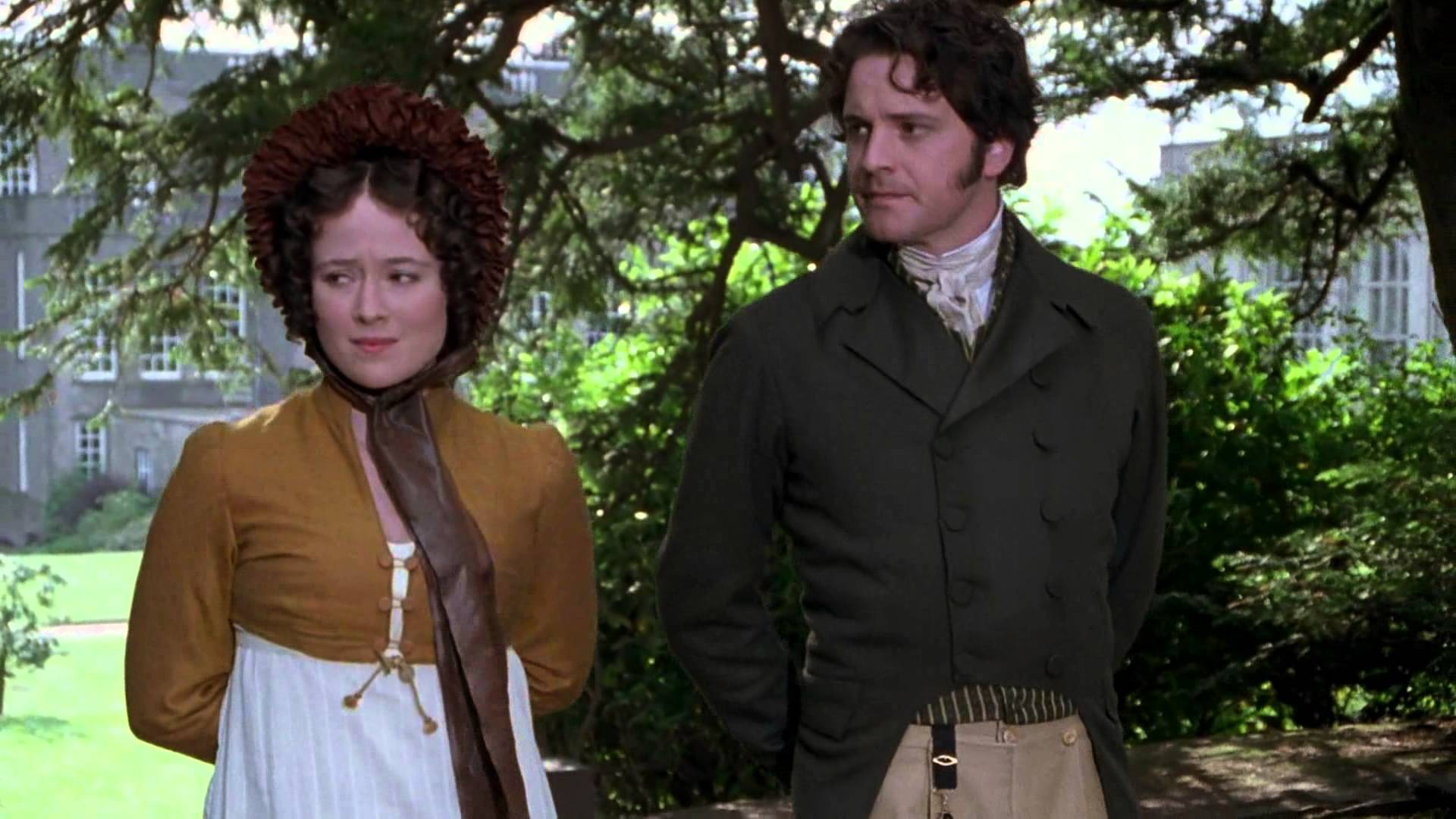
Seriously, this story is perfect. There’s a reason why people keep making adaptations of it.
It’s also one of the most misunderstood works of English Literature, but I suppose that can’t be helped.
Elizabeth Bennet is THE female protagonist. She’s a person who always considers other people’s problems before she thinks about her own, but while she busy caring about her sisters, and just hanging out with her jam bud Charlotte Lucas, she somehow wins the heart of the most eligible bachelor ever. Mr. Darcy is a little more opaque than she is. He’s a jerk with a heart of gold. He has an arc too.
Really, it’s the characters that make this novel. Everyone of them, even ones that are quite incidental, are wonderfully realized and very, very memorable.
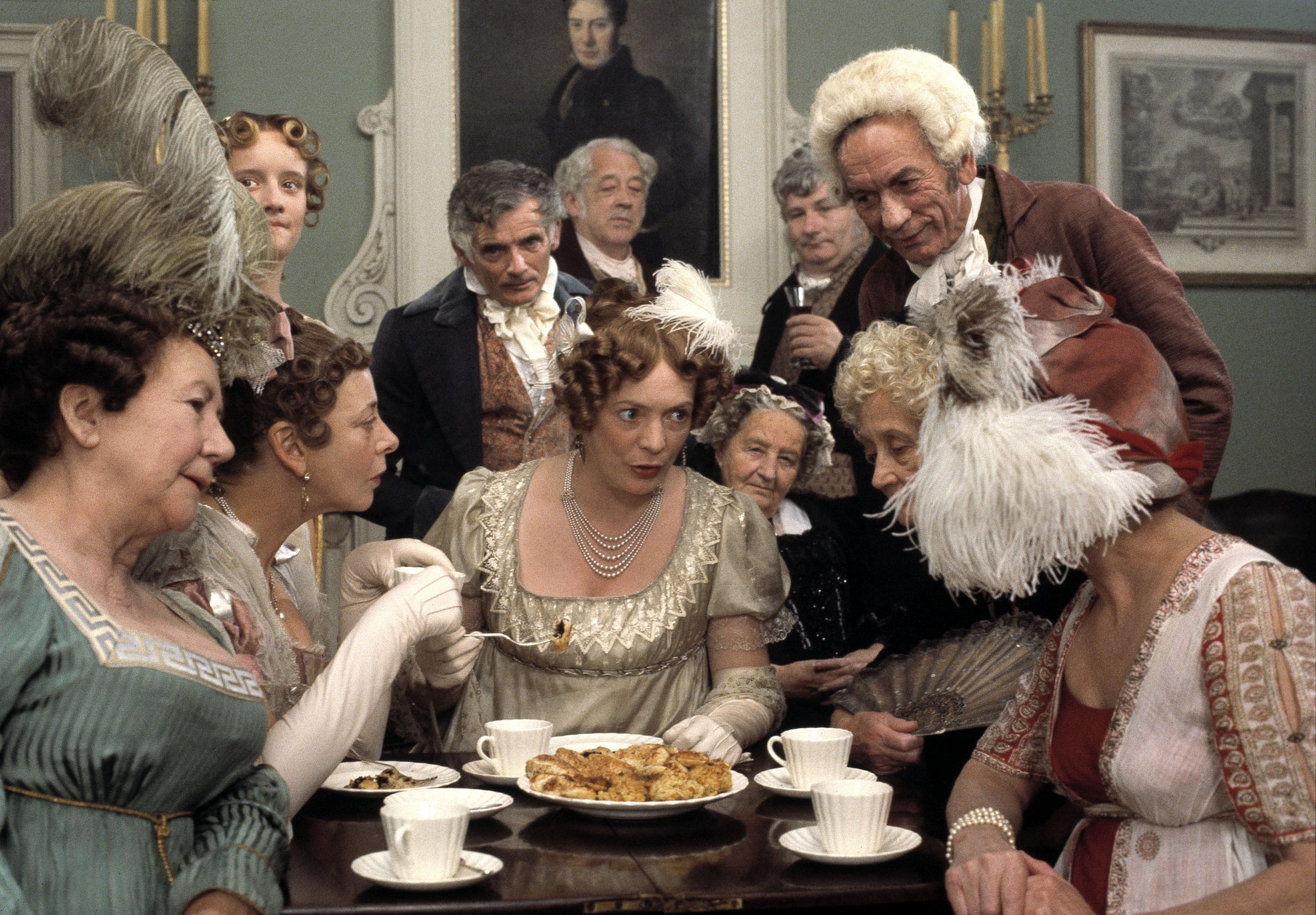
There’s Jane Bennet, the cinnamon roll, Lydia Bennet, the girl everyone knew in highschool, Mr. Bingley, the charmingly befuddled one, Mrs. Bennet, who is not the least bit like my own perfectly reasonable mother, Caroline Bingley, the closest thing this novel has to a villain, Lady Catherine, who is what Emma would have been like as an old lady, if she hadn’t experienced character growth, Mr. Collins, the self-important sycophant. They’re all great.
The theme of the piece is marriage, and what makes a marriage good. Is it sex and hotness? Nope. Lydia and Wickham taught us that. (And quite possibly Mr. and Mrs. Bennet too… chew on that.) Is it money and pragmatism? Ask Charlotte Lucas. And while it’s tempting to think the answer is just “love,” that’s a rather simplistic understanding of what makes Elizabeth and Darcy work in the end. There’s love between them, yes, but also respect: a feeling that they’re equals.
And they actually know each other; they’ve seen the least flattering sides of each other and understand that their greatest flaws are also their greatest strengths. They’re getting married, because they’ve reasoned that it would actually make them happy.
I kind of feel that if I could only read one novel ever again, this might be it. It’s intellectual, it’s funny, it’s got some mystery plot in there. It’s just perfect.

***
So there we have it. The one true possible ranking of all six of Jane Austen’s novels.
I’m sure no one could possibly disagree.


